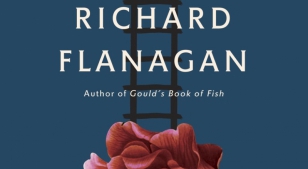’It was with awe
That I beheld
Fresh leaves, green leaves,
Bright in the sun’
In his perfectly crafted haiku poems, Basho described the natural world with great simplicity and delicacy of feeling. When he composed The Narrow Road to the Deep North, he was an ardent student of Zen Buddhism, setting off on a series of travels designed to strip away the trappings of the material world and bring spiritual enlightenment. He wrote of the seasons changin, of the smells of the rain, the brightness of the moon, and beauty of the waterfall, through which he sense mysteries of the universe. There’s seventeenth-century travel writing not only chronicle Basho’s perilous journeys through Japan, but they also capture his vision of eternity in the transient world around him.
In his lucid translation Nobuyuki Yuasa captures the Lyrical qualities of Basho’s poetry and prose by using the natural rhythms and language of the contemporary speech. IN his introduction, he examines the development of the haibun style in which poetry and prose stand side by side. this edition also includes maps and notes on the texts.
For more than seventy years, Penguin has been the leading publisher of classic literature in the English-speaking world. With more than 1,700 titles, Penguin Classics represents a global bookshelf of the best works throughout history and across genres and disciplines. Readers trust the series to provide authoritative texts enhanced by introductions and notes by distinguished scholars and contemporary authors, as well as up-to-date translations by award-winning translators.



 天天爆殺
天天爆殺  今日66折
今日66折 
















































































![[第二批到貨]Nintendo Switch 2主機包含《瑪利歐賽車世界》盒裝版 [台灣公司貨]](http://im2.book.com.tw/image/getImage?i=https://www.books.com.tw/img/N00/181/72/N001817213.jpg&v=68072b50k&w=210&h=210)


![[第二批]任天堂《主機》Nintendo Switch 2 主機 / 淺藍&淺紅手把 +《瑪利歐賽車 世界》主機組合 ⚘ Nintendo Switch ⚘ 台灣公司貨](http://im1.book.com.tw/image/getImage?i=https://www.books.com.tw/img/N00/182/38/N001823838.jpg&v=681dae90k&w=210&h=210)

![[星巴克]miffy絎縫托特包](http://im2.book.com.tw/image/getImage?i=https://www.books.com.tw/img/N00/181/46/N001814679.jpg&v=6810d55ck&w=210&h=210)




![[星巴克]miffy帆布手提袋](http://im1.book.com.tw/image/getImage?i=https://www.books.com.tw/img/N00/181/46/N001814678.jpg&v=6810d3f5k&w=210&h=210)
![[星巴克]草莓可可杏仁捲](http://im2.book.com.tw/image/getImage?i=https://www.books.com.tw/img/N00/181/47/N001814701.jpg&v=6810d8e2k&w=210&h=210)

![[星巴克]miffy綠把手馬克杯](http://im2.book.com.tw/image/getImage?i=https://www.books.com.tw/img/N00/181/46/N001814673.jpg&v=6810d1d9k&w=210&h=210)

![[星巴克]綜合星格脆手提行李箱](http://im2.book.com.tw/image/getImage?i=https://www.books.com.tw/img/N00/181/46/N001814697.jpg&v=6810d82ck&w=210&h=210)



![(4/10開)Nintendo Switch 2主機包含《瑪利歐賽車世界》盒裝版 [台灣公司貨]](http://im1.book.com.tw/image/getImage?i=https://www.books.com.tw/img/N00/181/32/N001813288.jpg&v=67fdd34ak&w=210&h=210)



![[星巴克]夏日印象不鏽鋼TOGO冷水杯](http://im1.book.com.tw/image/getImage?i=https://www.books.com.tw/img/N00/167/08/N001670806.jpg&v=660546f7k&w=210&h=210)


![[首批]任天堂《主機》Nintendo Switch 2 主機 / 淺藍色&淺紅色手把 +《瑪利歐賽車 世界》主機組合+派對遊戲任選一件 ⚘ Nintendo Switch ⚘ 台灣公司貨](http://im2.book.com.tw/image/getImage?i=https://www.books.com.tw/img/N00/181/53/N001815313.jpg&v=6800b515k&w=210&h=210)






![[星巴克]miffy綠圍裙](http://im2.book.com.tw/image/getImage?i=https://www.books.com.tw/img/N00/181/46/N001814677.jpg&v=6810d342k&w=210&h=210)

















 博客來
博客來 博客來
博客來 博客來
博客來 博客來
博客來 博客來
博客來